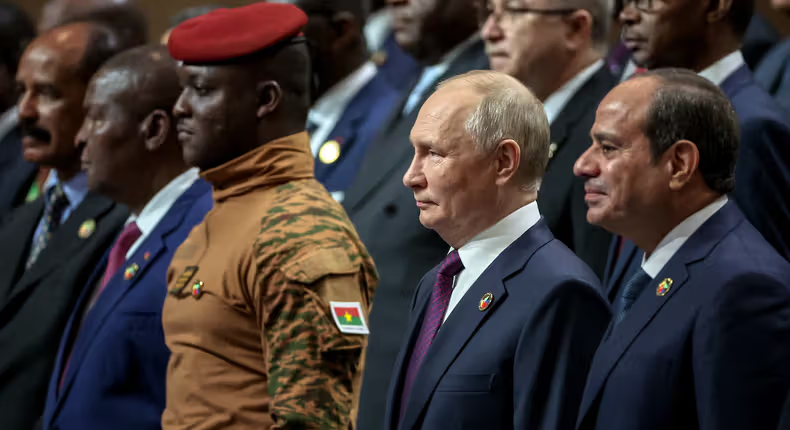In a bold move signaling a shift in military alliances and strategies, Mali, Niger, and Burkina Faso have formalized a significant agreement with Russia to acquire telecommunications and surveillance satellites. This partnership comes at a critical juncture, as these West African nations face ongoing Islamist insurgencies and seek to enhance their national security systems. In this blog post, we’ll explore the implications of this strategic deal, its potential impact on regional security, and the broader context of international relations in the Sahel.
Chapter 1: A New Era of Cooperation
The signing of the agreement in Bamako marks a pivotal moment for the three nations, which have struggled to maintain stability against a backdrop of increasing violence from extremist groups. As relations with Western allies wane, this collaboration with Russia represents not just a procurement of technology, but a fundamental shift towards strengthening military partnerships. The satellites will provide advanced surveillance capabilities, allowing these countries to monitor their extensive borders more effectively and respond faster to threats.
Chapter 2: Enhancing National Security
The primary objective of acquiring these satellites is to bolster national security through enhanced border surveillance and communication. The Sahel region is characterized by vast and often challenging terrain, making traditional surveillance methods less effective. Satellite technology allows for comprehensive monitoring, which is crucial in identifying and countering militant activities that threaten the safety of citizens. By utilizing advanced satellite capabilities, Mali, Niger, and Burkina Faso aim to create a more secure environment for their populations.
Chapter 3: Responding to Natural Disasters
Beyond military applications, the satellites hold significant promise for disaster management and humanitarian efforts. The Sahel is prone to natural disasters such as floods and droughts, which can devastate communities and displace populations. The satellite technology will enhance the capacity of these governments to monitor environmental conditions and respond swiftly in times of crisis, thereby saving lives and mitigating the impact of disasters. This multifaceted use of satellite technology underscores the importance of investing in communication infrastructure to address both security and humanitarian challenges.
Chapter 4: The Alliance of Sahel States
The agreement is further strengthened by the formation of the Alliance of Sahel States, a mutual defense pact established by the military leaders of Mali, Niger, and Burkina Faso. This alliance aims to present a united front against jihadist insurgencies and respond to regional threats collaboratively. By pooling resources and sharing intelligence, these nations are establishing a coordinated strategy to counteract the pressures for democratic governance that often complicate their fight against extremism. The collaboration with Russia, in this context, signifies an alignment of interests that could redefine the security dynamics in the region.
Chapter 5: The Broader Implications of Russian Influence
As these West African nations lean towards Russia for military support, questions arise about the long-term implications of increased Russian influence in Africa. This partnership may alter the geopolitical landscape, potentially drawing the attention of Western powers and necessitating a reevaluation of their strategies in the region. The balance of power is shifting, and it remains to be seen how this will impact international relations, economic opportunities, and the overarching quest for stability in the Sahel.
Conclusion: A Strategic Path Forward
The strategic satellite deal between Mali, Niger, and Burkina Faso and Russia represents a significant step forward in enhancing national security and fostering regional cooperation in the face of emerging threats. Through advanced technology and collaborative defense initiatives, these nations are committed to addressing both immediate security needs and long-term developmental challenges. As they navigate this new alliance, the focus will undoubtedly be on how well they can implement these strategies to create a safer and more resilient Sahel. The path ahead is fraught with challenges, but with determination and collaboration, Mali, Niger, and Burkina Faso are poised to reshape their security landscape.


